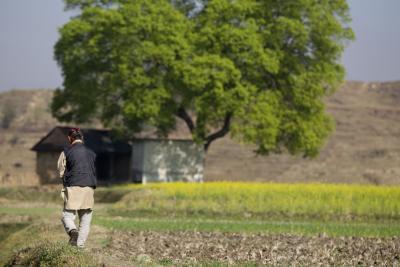(MENAFN- IANS) As per the ancient scriptures, holding cows would be considered the utmost form of luxury and material possession. In fact, battles were waged between tribes for the possession of cows as property. However, a nation with as much cattle population could not develop it sufficiently to build it into a massively successful sector with little support from the government over the last few decades.
In the years since 2014, the Rashtriya Gokul Mission along with the formation of the Kamdhenu Commission three years back has been able to give the much-needed boost to the sector.
Over 25 crore animals have been tagged as part of the National Lifestock Digital Mission. Experts from countries like Brazil and Argentina have imparted training for the successful implementation of IVF technology whereas bulls from Europe have been imported to further nurture high-quality bulls. As a result of these ventures, milk production in the country has increased by 45 per cent in the last seven to eight years. This new energy in the country's dairy and animal husbandry sector can play a huge role in changing the condition of farmers and contribute towards doubling the farmers income through yet another 'White Revolution' in the nation.
In furtherance of the same, a National Gopal Ratan award has been constituted for the livestock and dairy sectors to award the best indigenous cattle breeding farmer, artificial insemination technician and dairy cooperative. To encourage them, prizes of Rs 5 lakh, Rs 3 lakh and Rs 2 lakh respectively are awarded to these individuals on National Milk Day every year i.e. November 26.
As part of the Rashtriya Gokul Mission, work is underway to increase the coverage of artificial insemination to 70 per cent in a time-bound manner. Under the mission, young men and women are being trained as Maitris (Multipurpose Artificial Insemination Technicians) who will provide services to the farmers at doorstep. So far, more than 29,000 individuals have been trained along with the distribution of free equipment worth Rs 50,000 by the government. Sex-sorted semen to produce female calves with 90 per cent accuracy has become a gamechanger not only in increasing milk production but also limiting the stray cattle population.
In continuance of the same, the goal in the next 5 years is to ensure 16.5 crore animals are covered under artificial insemination programmes along with the training of a further 40,000 artificial insemination technicians. More than 1.15 lakh assured pregnancies are targeted to be conducted via IVF technology through the 44 existing semen stations.
It is expected that about 125 breeding farms of indigenous cows and bulls that could produce approximately 5000 high-quality genetic bulls shall be established. These goals are expected to build upon the achievements of the past five years where more than 8 crore dairy farmers have benefited from increased milk production and bovine productivity with the National Artificial Insemination Programme covering over 3.5 million cattle. Over 16 Gokul Grams as well as 2 National Kamadhenu Breeding centres have been established for the development and conservation of indigenous breeds in a scientific and holistic manner through these bovine IVF labs in operation.
More than 1100 calves have taken birth with government support of Rs 5,000 to these dairy farmers in 19 bovine IVF functional labs in recent time.
The potential to enhance the productivity of the indigenous breeds of India through professional farm management and superior nutrition is immense. For this it is essential to promote conservation and development of indigenous breeds.
The Rashtriya Gokul Mission aims to conserve and develop Indigenous Breeds in a focused and scientific manner. Genetic improvement being a long term activity, this project envisages genetic up gradation and development of bovines in a holistic manner.
To improve service delivery of bovine breeding activities by imparting quality training to AI technicians and establishment of regional training institute throughout the country.
To improve the Monitoring of bovine breeding activities by computerisation and implementation of Information Network for Animal Productivity and Health (INAPH) are the integral part of the mission and efforts have been made to realise the aim and objectives. This mission is directly supplementing the farmer's income that will enhance their standard of living, lifestyle, adoption and percolation of latest scientific and technological development to the grassroots that ultimately contribute to the rural economy.
--IANS
svn/




















Comments
No comment